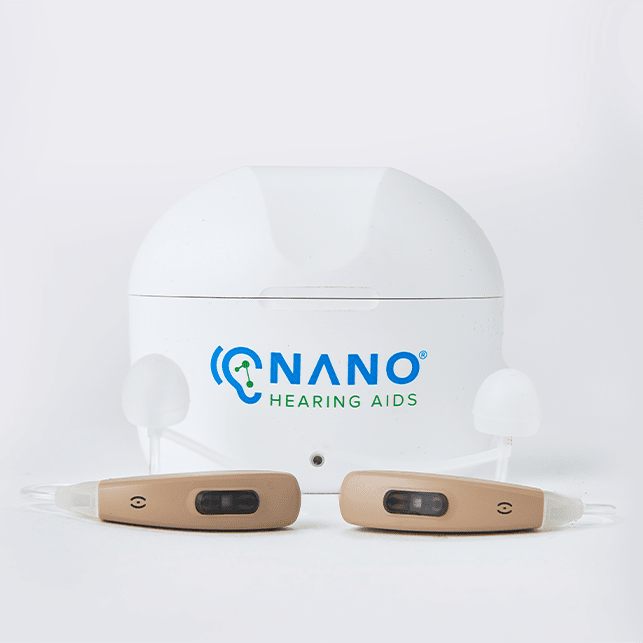Key Takeaways
Understanding Hearing Loss in Seniors and Accessible Solutions
In the United States, approximately 40-50% of seniors experience some form of hearing loss. Among adults aged 70 and older, about 43% report hearing difficulties.
This prevalence increases with age, with nearly 50% of individuals over 75 experiencing hearing challenges. Hearing loss impacts communication and has also been linked to cognitive decline, an increased risk of falls, and social isolation. Seniors with untreated hearing loss are at a higher risk of developing dementia, emphasizing the importance of timely intervention.
Nano Hearing Aids are FDA-registered, Class I devices. These OTC hearing aids are designed for individuals over 18 years of age with perceived mild to moderate hearing impairment. Nano won the Top ENT Solution Provider 2023, has 24/7 customer care, and has an affordable price compared to others.
The Role of Hearing Aids
Prescribed hearing aids are among the most effective solutions for managing mild to severe hearing loss. However, despite their proven benefits, only about 29% of seniors who need hearing aids use them.
This gap can be attributed to several factors, including the high cost of prescribed hearing aids (averaging $1,000 to $3,000 per device), reluctance to wear a device due to perceived stigma, and the gradual nature of hearing loss, which can make it harder to notice and address early.
Barriers to Accessibility
Barriers such as insufficient awareness and lack of insurance coverage for hearing aids further exacerbate the issue. Medicare, for instance, does not cover hearing aids, leaving many seniors to bear the cost out of pocket.
Yet studies show that consistent use of hearing aids can improve social engagement, emotional well-being, and even cognitive performance. By educating seniors about the options available, these barriers can be reduced.
Common Signs of Hearing Loss in Seniors
The Best Hearing Aids for Seniors
Nano Hearing Aids
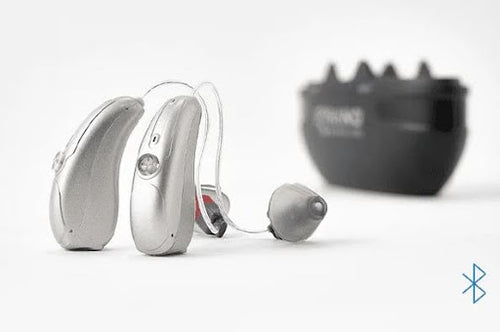
Nano hearing aids combine affordability with cutting-edge technology, making them an excellent choice for seniors.
Nano Hearing Aids is a manufacturer of affordable, high-quality OTC solutions for perceived mild to moderate hearing loss, with discreet, user-friendly designs suitable for seniors.
Eargo Hearing Aids
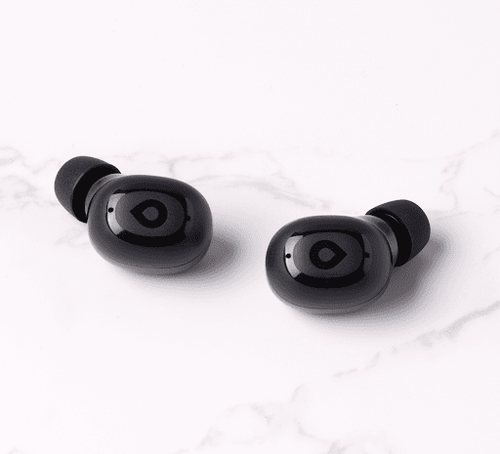
Eargo hearing aids combine discreet design and advanced technology for senior users.
Eargo prioritizes nearly invisible designs and self-fitting capabilities:
Phonak Hearing Aids
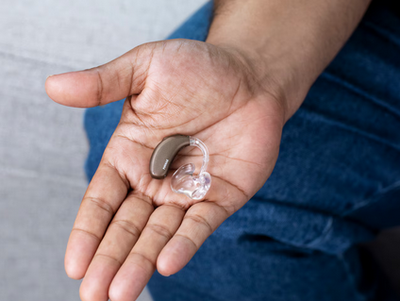
Phonak hearing aids are a good choice for seniors seeking clarity and comfort.
Phonak is an established brand in hearing aid technology, incorporating artificial intelligence and advanced connectivity features into its devices.
Beltone Hearing Aids
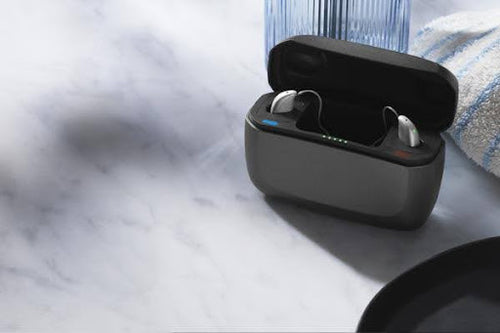
Beltone hearing aids offer reliable performance with modern designs for seniors.
Beltone offers durable, customizable hearing solutions:
Starkey Hearing Aids
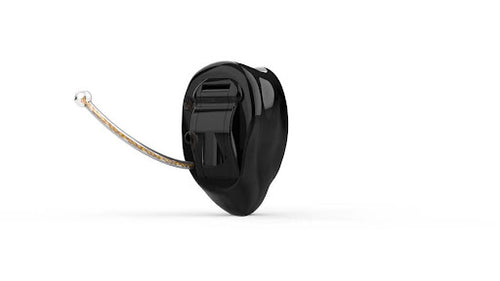
Black Starkey in-ear hearing aid with a sleek, compact design.
Starkey integrates AI technology with versatile functionality:
Cost Considerations for Seniors
Why Choose Nano Hearing Aids?
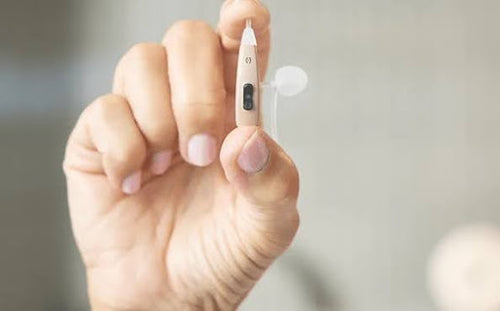
Nano hearing aids are equipped with innovative features that fit senior hearing needs.
At Nano Hearing Aids, we manufacture high-quality, over-the-counter hearing solutions developed specifically for individuals with perceived mild to moderate hearing loss. With over 7 years of experience, we’ve developed a diverse range of models to suit varying needs, offering a perfect balance of affordability, functionality, and discretion.
Nano Hearing Aids offers competitive pricing without compromising quality. Our devices are lightweight, portable, and easy to use, ensuring seamless integration into your daily routine. With a 45-day money-back guarantee and 24/7 customer support, we prioritize your satisfaction and strive to make better hearing accessible to everyone.
Frequently Asked Questions (FAQ)
What are common signs of hearing loss in seniors?
Common signs include difficulty following phone conversations, needing to turn up the TV volume, trouble communicating in noisy environments, ringing in the ears, frequently asking others to repeat themselves, and misunderstanding conversations.
Why do many seniors not use hearing aids despite needing them?
Barriers include the high cost of hearing aids, perceived stigma around wearing them, gradual onset of hearing loss that goes unnoticed, and lack of insurance coverage, such as Medicare not covering hearing aids.
What options are available for seniors who cannot afford hearing aids?
Seniors may consider Veterans Affairs (for eligible veterans), Medicaid (in some states), nonprofit organizations like the Hearing Loss Association of America, or state vocational rehabilitation programs for financial assistance.
Are hearing aids effective for all levels of hearing loss?
Hearing aids are most effective for perceived mild to severe hearing loss. However, the suitability depends on the individual’s specific condition, and it’s recommended to consult a professional for guidance.
Nano Hearing Aids features affordable OTC solutions designed for perceived mild to moderate hearing loss, featuring models like the Audacity RIC and First Ear Pro series with advanced features such as Bluetooth streaming, noise reduction, and long-lasting battery life. With a 45-day money-back guarantee and 24/7 customer support, we combine quality and accessibility for seniors seeking reliable hearing solutions.

